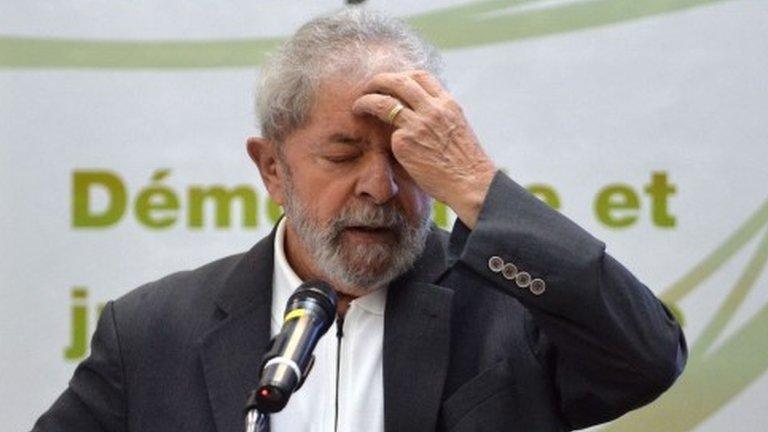Brazil's Delcidio do Amaral: Turncoat or whistleblower?
- Published
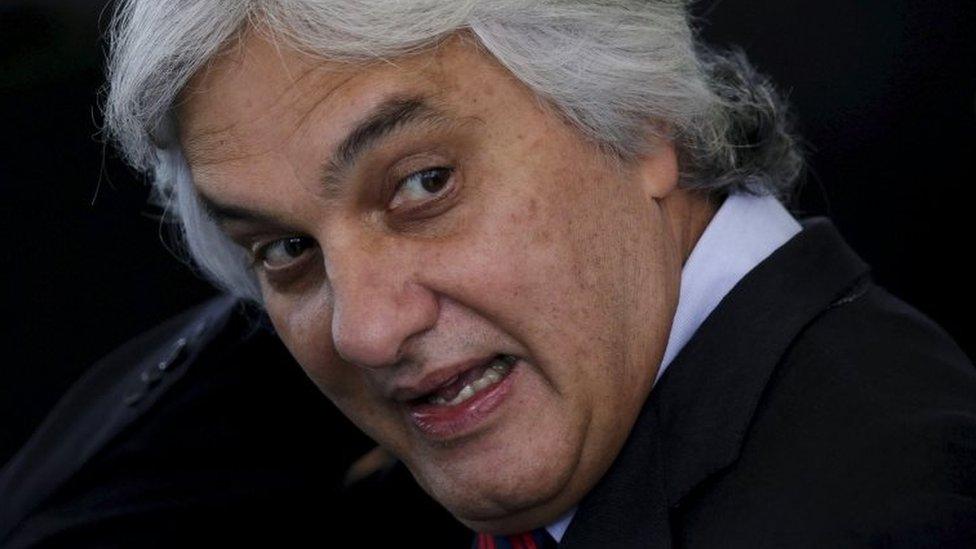
Delcidio Amaral was arrested in Brasilia last November
Less than six months ago, Delcidio do Amaral was a powerful figure in Brazil's upper house of Congress.
He was the leader of the governing Workers' Party in the Senate, and as such a key and powerful ally of President Dilma Rousseff.
If it had not been for the unprecedented events on 25 November, Mr Amaral would now be using all of his political skills and contacts to try to stop impeachment proceedings against President Rousseff.
The Senate is due to vote next week on whether to launch an impeachment trial against the president on charges that she manipulated government accounts.
If a simple majority vote against a trial, Ms Rousseff stays in power. If a simple majority vote in favour of a trial, she is suspended for its duration and Vice-President Michel Temer takes over.
Brazilian media largely think the vote will go against the president.
Escape plan
Mr Amaral would have been the man in charge of cajoling and convincing senators to vote against the impeachment trial.
But his arrest on 25 November in the capital, Brasilia, changed his fate dramatically and could arguably change that of the president, too.
Not only was Mr Amaral the first sitting senator to be arrested in Brazil, the allegations against him were dramatic, too.
Before becoming a senator for the Workers' Party, Mr Amaral held a key job at state oil giant Petrobras.
Petrobras is the company at the centre of a massive corruption scandal which has led to the arrests of dozens of lawmakers and businessmen in Brazil.
Mr Amaral's arrest was triggered by a recording in which he appeared to try to buy the silence of jailed Petrobras executive Nestor Cervero by offering to help him escape from jail in Brazil to safety in Spain via Venezuela.
At first it seemed like Mr Amaral had acted alone, trying to shield himself from being incriminated by Cervero.
Mr Amaral's stint at Petrobras dated back to 2000 and 2001, a time when the opposition PSDB was in power, not the Workers' Party.
Plea bargain
While having their Senate leader arrested was certainly damaging, the damage seemed containable for the party.
But it soon emerged that some of Mr Amaral's closest friends had been given top executive positions under the Workers' Party government and had gone on to become key figures in the multibillion dollar kickbacks scheme at Petrobras.
Not surprisingly, President Rousseff and the Workers' Party sought to distance themselves from Mr Amaral following his arrest.
In hindsight, turning their back on him may have been a costly political mistake.
Feeling isolated and betrayed, Mr Amaral signed a plea bargain deal with authorities promising to reveal everything he knew about the corruption scandal.
He has since implicated 74 people from almost all parties.
They have all denied any wrongdoing and accused the senator of lying.
While Mr Amaral's allegations have yet to be proven, the political damage his accusations have caused seems irreversible
High-profile targets
His main targets have been President Rousseff and her predecessor in office, Luiz Inacio Lula da Silva.
He accused Lula of leading the graft scheme at Petrobras by securing key roles for corrupt allies.
According to Mr Amaral, the corrupt executives would secure inflated contracts with construction companies, which would then pay part of their windfall to the executives and politicians who were in on the deal.
Mr Amaral also alleged that he had acted under Lula's orders when he tried to buy Cervero's silence.
And he accused President Rousseff of trying to silence him after he was arrested in November.
Both Lula and Ms Rousseff have denied the accusations and called Mr Amaral a liar.
Irreversible damage
The allegations have been hugely damaging to Ms Rousseff's political standing at a time when she is fighting impeachment over unrelated allegations.
Before Mr Amaral's revelations, support for her impeachment seemed to be waning in Congress. But the fresh allegations against her and Lula gave her critics a boost.
They gained further strength on Tuesday, when Brazil's Attorney General Rodrigo Janot asked the Supreme Court to launch an investigations into Lula and Ms Rousseff based on the allegations made by Mr Amaral.
Considering all the things Delcidio do Amaral has confessed to, it may come as a surprise he is no longer in prison.
As part of his plea deal, he not only managed to secure his release from jail but also to retain his job as a senator.
As such, he will get to vote next week on whether his former ally turned bitter enemy, President Rousseff, should face an impeachment trial.
Unless he himself is first suspended by the Senate's ethics committee, that is.
- Published4 May 2016
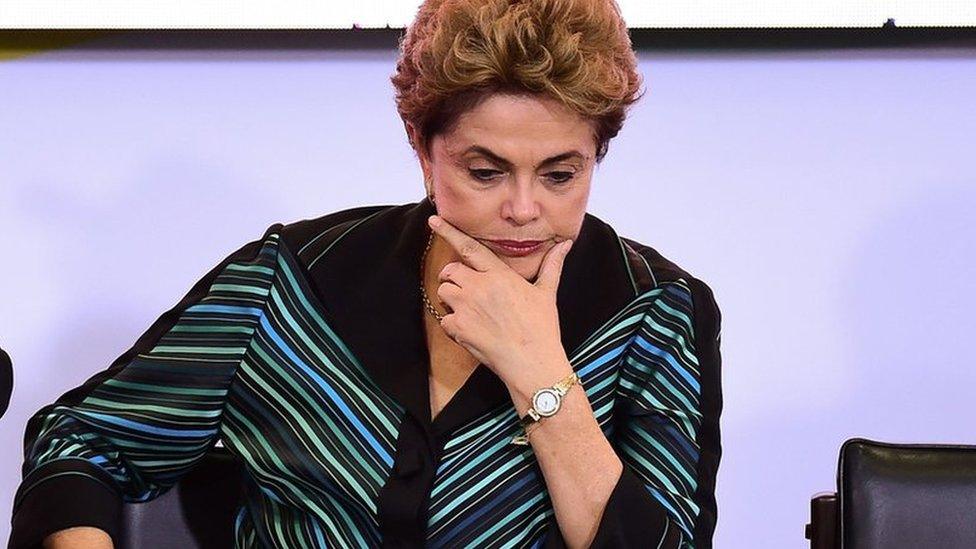
- Published26 November 2015
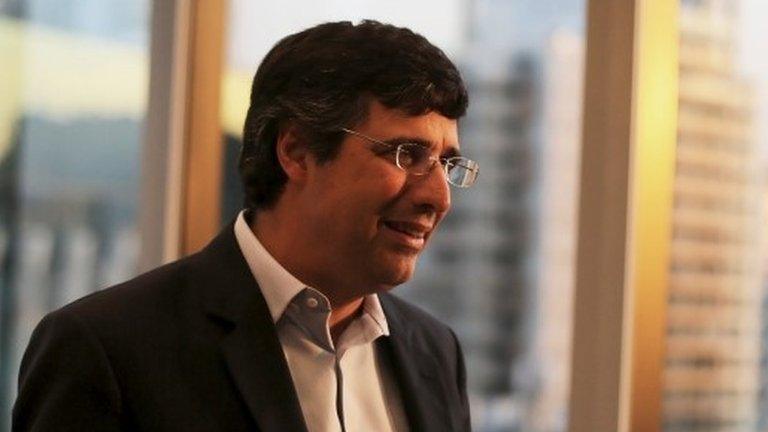
- Published31 August 2016
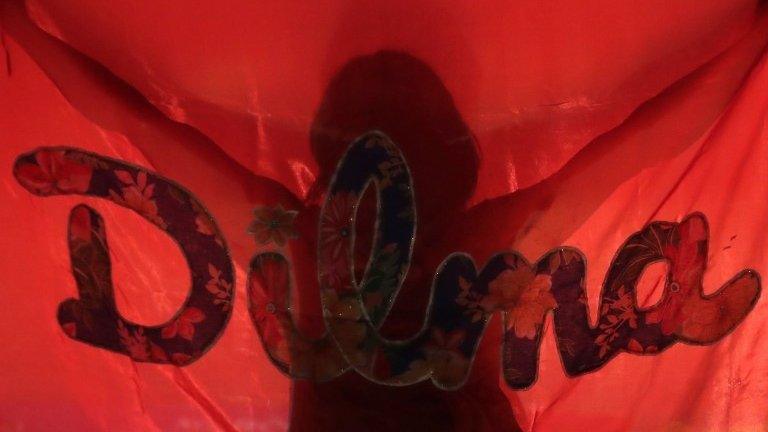
- Published4 May 2016
